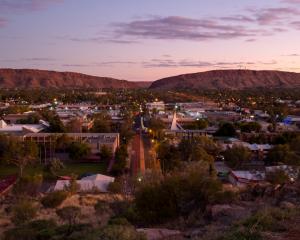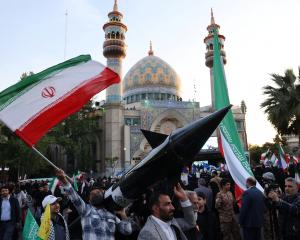The United States and the European Union, the top rich emitters, have both said they will not increase planned cuts in emissions by 2020 as part of wider efforts to shift from fossil fuels towards renewable energies.
In turn, rich nations want more action by the fast-growing emerging nations - India is the number three greenhouse gas emitter behind China and the United States, while Brazil ranks about 17th.
World emissions of carbon dioxide rose about 3 percent last year, largely because of strong growth in emerging economies despite slowdown in many rich nations.
As each faction presses its case, the talks are floundering in their efforts to step up ways to slow a rise in rise temperatures that the UN panel of climate scientists says will bring more floods, heatwaves, droughts and rising sea levels.
"We are disappointed ... that the developed countries are in the process of locking in low ambitions" for slowing climate change, Mira Mehrishi, head of India's delegation in Doha, told a news conference at the Nov. 26-Dec. 7 talks among 200 nations.
"Many developed countries are not ... concentrating on their main problem, which in general is energy," Brazil's delegation leader Andre Correa do Lago told Reuters.
Mehrishi denied that the group of major emerging economies - China, India, Brazil and South Africa - were backsliding from promises a year ago to work for a new global deal meant to be agreed in 2015 and enter into force from 2020.
Even so, in the past year, they have emphasised that the planned accord preserves a divide between developed and developing nations defined in a 1992 climate treaty that obliges rich nations to lead.
"It's not that (major emerging) countries are sliding backwards," she said. "It is a package that will be applicable to all."
However, the 1992 divide defines nations such as South Korea, Singapore or Mexico as developing even though they are richer than some European states that are bound to make cuts.
Correa do Lago noted that Brazil was reining in its main problem as deforestation of the Amazon fell this year to the lowest since monitoring started in 1988. Trees soak up carbon dioxide they grow and release it when they rot or burn.
And Mehrishi said that India was committed to its 2009 pledge to reduce the amount of carbon emitted per rupee of economic output by 20 to 25 percent by 2020 from 2005 levels. That lets emissions rise, but less fast than economic growth.
Doha is trying to extend the existing Kyoto Protocol, which obliges almost 40 rich nations to cut emissions by an average of at least 5.2 percent below 1990 levels between 2008 and 2012.
But Russia, Canada and Japan say they are pulling out of Kyoto, leaving only a core group led by the European Union and Australia. The United States never joined the 1997 Kyoto pact.
The head of the UN panel of climate scientists said that evidence that global warming is man-made was getting stronger, a blow to sceptics' hopes that rising temperatures can be explained by natural variations.
"I expect so," Rajendra Pachauri told Reuters when asked if the panel's next report in 2013 would raise the probability that human activity was the main cause of climate change from "at least 90 percent" in its last report in 2007.












